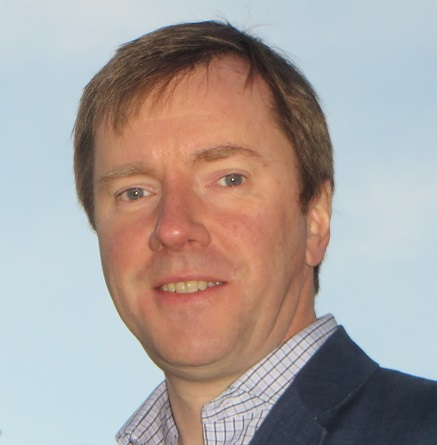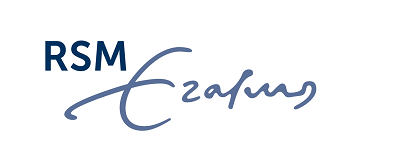- Finance
Finance for a Sustainable Future
RSM’s Dirk Schoenmaker on combining financial/economic with social/environmental thinking for businesses to operate with purpose and profit
Things are changing in the world of business. For all of the twentieth century the imperative on managers was to ruthlessly focus on efficiency. Squeezing ever greater returns from fewer resources was the fast route to beating targets and the competition. Henry Ford’s production line was the first major example of this, supermarkets where you ‘piled it high and sold it cheap’ arrived in the 1950s, and by the 1990s and early 2000s expensive items such as personal computers were being commoditized and the beginnings of customization appearing with Dell’s build-your-own approach taking-off. But cost and efficiency were still the watchwords.
Towards sustainability
Today, in the twenty-first century, a shift is occurring – and it will be an enduring one as it is driven by both the end-consumer and the large corporations. Both are seeking greater sustainability and balance from their consumption and production. While you may be able to refine inanimate machines to be ever more efficient, the living world – people and the wider environment – cannot sustainably keep giving more from less.

Dirk Schoenmaker is a finance professor at Rotterdam School of Management, Erasmus University (RSM), where he now leads an executive program on sustainable finance. He sees that the era where managers could make decisions based purely on economic and financial bases has passed. He stresses that “Financial and economic thinking has to be combined with social and environmental thinking now, we have to integrate them – they are not separate worlds.” He is supported in this by a recent report from the global executive search firm Russell Reynolds that highlights the limited supply of business executives who think sustainably. Schoenmaker’s program at RSM focuses on how to put concrete numbers on some of these seemingly fuzzy concepts, so that decision-making can be more effectively achieved.
......................................................................................................................
Dates: 11-13 November 2019 │ Format: In-class study │ Location: Rotterdam
......................................................................................................................
As an example, he cites “When a company is doing business it has the option to pay the living wage [in whatever region it is operating in] or it can pay the bare legal minimum.” In the past the search for maximising efficiency would have pushed the decision towards minimising the cost wherever they could, and the economic rationale would have supported that; today it is not just a moral imperative that suggests that this approach is not optimal, but there is a PR and marketing element that also pushes the decision towards the living wage choice. Companies that have been found to use exploitative low wages, even if legal, have suffered – their customer base has shunned them when their reputations have been knocked.
Sustainable finance decision-making
Schoenmaker however is also clear that by being ahead of the curve on these decisions allows companies to build stronger foundations and be more resilient to future shocks. In this example they will have a more loyal and committed workforce if they have treated them well in the past, but the sustainable finance decision-making can equally reach into low-carbon emissions or recyclables choices.
In May this year the Dutch lighting and health technology giant, Philips, was part of a consortium of large businesses that committed to purchasing all the energy produced by a new Dutch offshore wind farm, and in so doing made their operations in the Netherlands 100% renewable, matching the operations of their US business and bringing them closer to their target for 2020 of being a fully carbon neutral organization. Philips has embraced this approach because it believes it is a good policy to build its long-term business upon – but it is also guided by the United Nation’s SDGs, as a framework to move forward by.
The seventeen UN Sustainable Development Goals were introduced in 2015 and while primarily aimed at the countries that have signed up to the 2030 Agenda, they set a clear framework for all businesses to benchmark their processes by. The SDGs recognize that ending poverty and other deprivations must go hand-in-hand with strategies that improve health and education, reduce inequality, and spur economic growth – all while tackling climate change and working to preserve our oceans and forests.
Dirk Schoenmaker sees that in Philips case, when, at some unspecified point in the future but probably sooner than later, carbon taxes kick in, they will be in a much stronger position than any competitors who have not already made the change. The competitors will have to move more quickly, under duress, and will not be able to sell old carbon-intensive machinery by that stage. There is a clear early mover advantage.
With profit in mind
But Schoenmaker is also very clear that businesses have to make a sustainable and meaningful level of profit, and that the sustainable finance approach has to be created with this in mind. There is no benefit in adopting practices that are not financially viable, but they do not need to be absolutely profit-maximising in the immediate term. He sees that some large organizations, in the pharmaceutical sector for example, have created positions for themselves where they are able to make a consistent annual return on equity of 20% or more, which suggests that they are not giving-back as much to the community in terms of affordable pricing for medicines as they could be. Schoenmaker says that there is not a clear benchmark RoE level that can be generally applied to businesses above which they should not go; but to consistently be above the 10-15% range ought to raise questions and perhaps eyebrows.
Meeting the challenge
The challenge therefore for corporate leaders is to see these changes coming and adopt SDG practices that can strengthen their organization’s long-term position, while not dramatically damaging their short-term profitability. Managers need to have a measured response, and do these things in steps, he asserts.
The program Schoenmaker leads at RSM is aimed at senior professionals in the finance sector and executives approaching board-level positions, as they are the key to enabling businesses to operate with both purpose as well as profit. It is the financial institutions that create the parameters that businesses have to work within – if their profit margins fall, and so the share price falls, then borrowing becomes more expensive and so on. It is vital to get the financiers involved with the sustainable finance process therefore, and start shifting their mindsets too.
One of Europe’s leading business schools, and ranked among the top three for research, RSM provides ground-breaking research and education furthering excellence in all aspects of management.
ARTICLES YOU MIGHT LIKE
VIEWPOINT
Rotman School of Management’s David Goldreich discusses business finance, valuation, and planning for a post-pandemic recovery
DEVELOPING LEADERS QUARTERLY MAGAZINE AND WEEKLY BRIEFING EMAILS


































